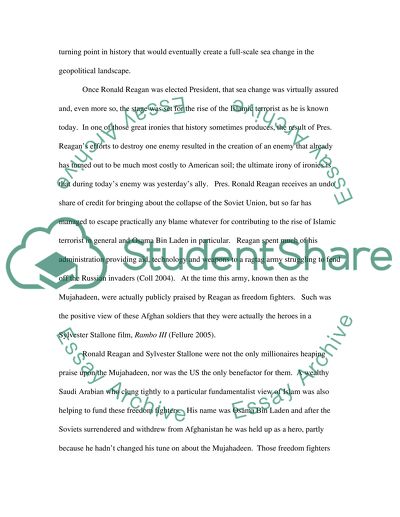Cite this document
(“The Socio-Political Factors of 9/11: Motivations and Responses Essay”, n.d.)
Retrieved from https://studentshare.org/miscellaneous/1537910-the-socio-political-factors-of-911-motivations-and-responses
Retrieved from https://studentshare.org/miscellaneous/1537910-the-socio-political-factors-of-911-motivations-and-responses
(The Socio-Political Factors of 9/11: Motivations and Responses Essay)
https://studentshare.org/miscellaneous/1537910-the-socio-political-factors-of-911-motivations-and-responses.
https://studentshare.org/miscellaneous/1537910-the-socio-political-factors-of-911-motivations-and-responses.
“The Socio-Political Factors of 9/11: Motivations and Responses Essay”, n.d. https://studentshare.org/miscellaneous/1537910-the-socio-political-factors-of-911-motivations-and-responses.


